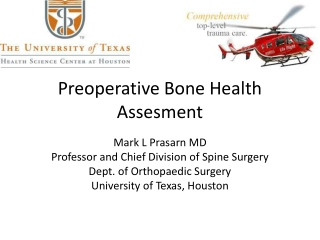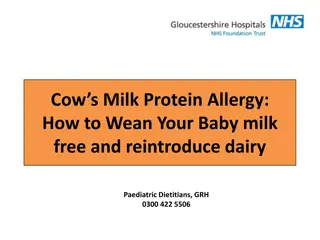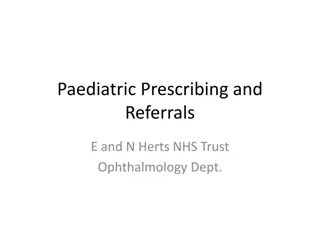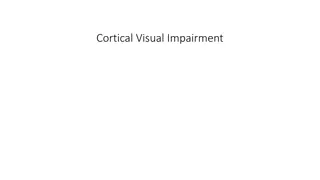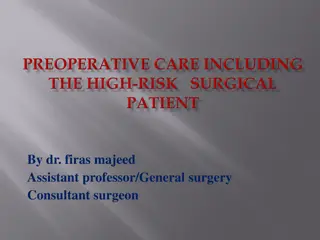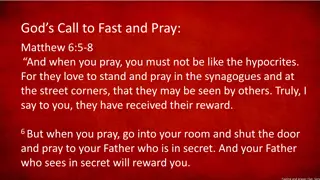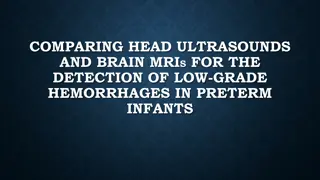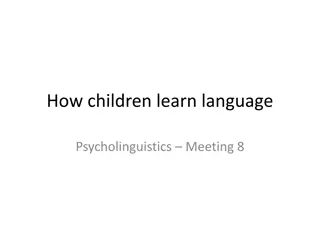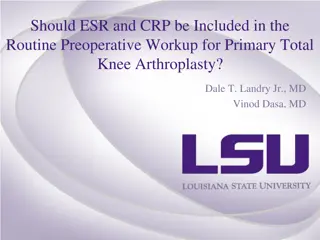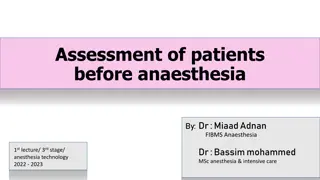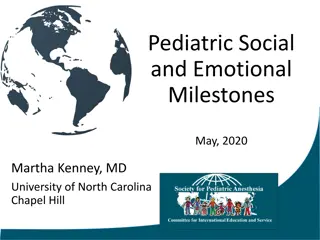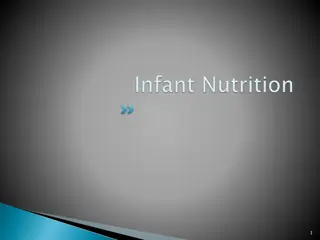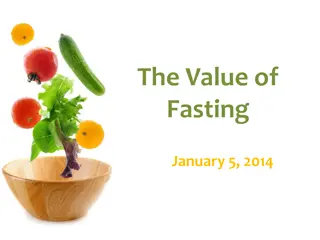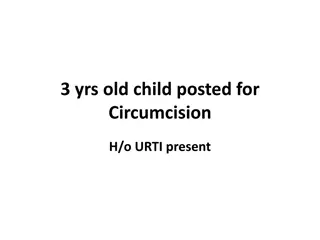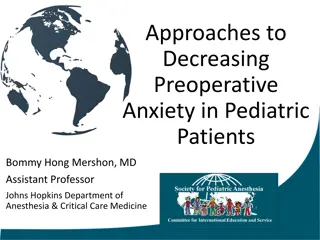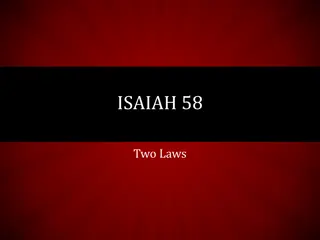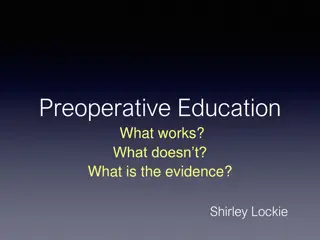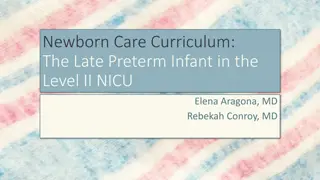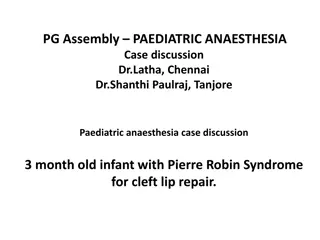Preoperative Fasting in Infants and Children: Guidelines and History
Explore the evolution and rationale behind preoperative fasting guidelines in infants and children, including historical cases of aspiration during anesthesia. Learn about Mendelson Syndrome, recommendations for aspiration prevention, and the development of NPO orders over the years. Discover the importance of fasting duration and dietary restrictions for safe anesthesia administration in pediatric patients.
Download Presentation

Please find below an Image/Link to download the presentation.
The content on the website is provided AS IS for your information and personal use only. It may not be sold, licensed, or shared on other websites without obtaining consent from the author. Download presentation by click this link. If you encounter any issues during the download, it is possible that the publisher has removed the file from their server.
E N D
Presentation Transcript
Preoperative Fasting in Infants and Children Janey Phelps, MD, FAAP University of North Carolina, Chapel Hill Children s Hospital
Disclosures No relevant financial relationships
Learning Objectives: Review history of NPO guidelines Review current ASA NPO guidelines Review controversial cases
History of Aspiration During Anesthesia 1853 Soldier in Burma vomited during surgery for a gunshot wound to the thigh Autopsy showed that trachea was filled with vomited matters 1862 1stcase report of death during anesthesia from inhalation of gastric contents 1940 Charles Hall described 15 cases of aspiration in obstetric patients 5 of the 15 patients died 1945 Curtis Mendelson describes 66 cases of aspiration of stomach contents out of 44,016 obstetric cases
Mendelson Syndrome In addition to the case series, Mendelson conducted research on adult rabbits 2 distinct Syndromes - Aspiration of solid material - Aspiration of liquid material
Mendelson Syndrome (cont) Recommendations to prevent aspiration NPO Regional versus general anesthesia Alkalinizing the stomach contents Competent administration of anesthesia Adequate equipment
History of NPO orders 1stbook on anesthesia did not mention fasting Fasting was to minimize unpleasantness of emesis 1847 Sir Joseph Lister published fasting guidelines Distinguished between solid meals and liquid 1883 Synopsis of Anaesthesia advocated for no food within 6 hours of anesthesia 1947 NPO after midnight Children NPO solid and milk for 6 hours, liquids for 2 hours (Cohen 1970) 1960 Roger Maltby, University of Calgary: randomized controlled trials to determine residual gastric volume (RGV) Reduction of RGV in drinking groups (clears up to 3 hours) vs fasted groups (solids) 1985 ASA NPO guidelines 1990
Critical Gastric Volume Gastric volume exceeds 25 ml with pH < 2.5 in 40- 80% of healthy patients who fasted for at least 8 hours Human stomach is very distensible and can accommodate up to 1000 ml before intra-gastric pressure increases 1986 Plourde and Hardy demonstrated in cats that gastric volume > 21 ml/kg was required to produce regurgitation while under ketamine anesthesia
Pulmonary Aspiration 1985-1992: 215,488 general anesthetics reviewed for pulmonary aspiration - Bilious secretions or solid matter in tracheobronchial tree - Presence of new infiltrate on postop chest X-ray ASA 1 & 2 Elective surgeries: 1/8000 ASA 4 & 5 Emergency surgeries: 1/343 ~ 75 - 80% occurred during induction Mortality was 1/71,829 Warner etal, Anesthesiology 1993
Pulmonary Aspiration and Pediatrics Pediatric Sedation Research Consortium (PSRC) database 42 participating institutes Reviewed 139,142 sedation/anesthesia encounters from 2007 - 2011 10 cases of aspiration (8 of these patients were appropriately NPO (>2 hours for clears, >6 hours for solids) No relationship between NPO interval and adverse pulmonary events Positive correlation between ASA status > 2, emergency sedation status, and young age Beach ML, etal. Anesthesiology 2012.
Analysis of Aspiration Event Versus NPO for Solids Duration of NPO (solids) Total Cases Aspiration Event < 2 hrs 659 0 2 hrs 798 0 4 hrs 4,208 0 6 hrs 23,421 5 >8 hrs 100,559 1 unknown 2,127 0 Total 131,772 6 5,665 NPO 4 hours or less for solids with no aspiration event Beach ML, etal. Anesthesiology 2012.
ASA Guidelines for Preoperative Fasting Revised in 2011 Intended patient population for these guidelines are limited to healthy patients of all ages undergoing elective procedures Not intended for women in labor Intended for general anesthesia, regional anesthesia, or sedation/analgesia (MAC) Following guidelines does not guarantee complete gastric emptying
ASA Guidelines for Preoperative Fasting Clear liquids 2 hours - Examples water, fruit juices without pulp, carbonated beverages, clear tea, and black coffee - No alcohol - Volume is less important than type Breast milk 4 hours Infant formula 6 hours Light meal and nonhuman milk 6 hours Fried or fatty foods 8 hours
How many hours are required for NPO status requiring Oral contrast for CT scan? 1) 2 hours 2) 4 hours 3) 6 hours 4) 8 hours 5) negligible
Oral Contrast: Current Practices and Controversies Goal is to obtain CT scan within 1 hour of contrast Emptying of clear liquids is proportional to the volume present Small bowel transit time - As fast as 15 minutes - Average 84 minutes - 83% is < 120 minutes Mahmoud M etal, Pediatric Radiology 2011.
Gastric emptying time of Oral Contrast 101 patients, 3 18 years of age Contrast enhanced abdominal CT - Acute appendicitis n=90 - Abdominal trauma n=10 - Suspected ileus n=1 < 40 kg: 500ml of contrast > 40 kg: 750ml of contrast Senior radiologist reviewed scans to estimate gastric emptying times (GET) Berger-Achituv S etal, Gastroenterology 2010.
Gastric emptying time of Oral Contrast Results of OCM in stomach - 75% at 48 +/- 5.2 minutes - 50% at 74 +/- 7.5 minutes - 25% at 135 +/- 32.5 minutes Mean time to drink OCM: 105.1 +/- 27.9 minutes Conclusion: advocate waiting minimum 3 hours after ingestion of OCM and GA
Ask the Experts 18 pediatric anesthesiologists: 5 Bowman Gray, 5 Duke and 8 UNC 27.8% have practiced < 5 years 16.6% have practiced 5 - 10 years 55.6% have practiced > 10 years 72.2% have > 5 years experience as a pediatric anesthesiologists
How many hours are required for NPO status requiring PO contrast for CT scan? Attendings 70.00% 60.00% 50.00% 40.00% 30.00% 20.00% 10.00% 0.00% 2 hours 4 hours 6 hours 8 hours negligible
How many hours are required to meet NPO status for hard candy? 1) 2 hours 2) 4 hours 3) 6 hours 4) 8 hours 5) negligible
How many hours are required to meet NPO status for hard candy? Attendings 70.00% 60.00% 50.00% 40.00% 30.00% 20.00% 10.00% 0.00% 2 hours 4 hours 6 hours 8 hours negligible
Parents Compliance with NPO Orders 120 Parents completed a survey after outpatient surgery Reasons for fasting Aspiration N & V Efficacy of Anesthesia Other Cantellow S et al. Pediatric Anesthesia 2012.
Parents Compliance with NPO Orders 9 8 7 6 Advised fasting times (median) 5 4 Actual fasting times (median) 3 2 13.5% were out of compliance based on survey results Increased fasting times places patients at risk for dehydration, especially if surgery is delayed 1 0 clears solids Cantellow S etal,. Pediatric Anesthesia 2012.
Considerations Some institutions in US are using 1 hour NPO for clears in children even though ASA recommendations are currently 2 hours Point of Care Ultrasound (POCUS) can be used to determine gastric volume and may change how NPO guidelines are viewed in the future
Conclusions: Although rare, aspiration pneumonia can lead to death Adhering to NPO guidelines does not always prevent aspirations All elective cases should adhere to ASA NPO guidelines - 2 hours clears - 4 hours breast milk - 6 hours formula/light meal - 8 hours fatty or full meals If patient has a full stomach and it is an emergency, perform a rapid sequence intubation
References: Roberts and Shirley. Reducing the risk of gastric aspiration during cesarean section. Anesthesia and Analgesia. 1974; 53: 859-868. Warner MA, Warner ME, Weber JG. Clinical significance of pulmonary aspiration during the perioperative period. Anesthesiology. 1993; 78: 56-62. Beach ML, Cohen DM, Gallagher SM, Cravero JP. Major Adverse Events and Relationship to Nil per Os Status in Pediatric Sedation/Anesthesia Outside the Operating Room: A Report of the Pediatric Sedation Research Consortium. Anesthesiology. 2016 Jan;124(1):80-8. Keeter S, Benator RM, Weinberg SM etal. Sedation in pediatric CT: National survey of current practice. Radiology. 1990; 175: 745-752. Mahmoud M, McAuliffe J, Donnelly L. Administration of enteric contrast material before abdominal CT in children: current practices and controversies. Pediatric Radiology. 2011; 41: 409-412. Berger-Achituv S, Zissin R, Shenkman Z, et al. Gastric emptying time of oral contrast material in children and adolescents undergoing abdominal computed tomography. Gastroenterology. 2010; 51: 31-34. Cantellow S, Lightfoot J, Bould H, Beringer R. Parents understanding of and compliance with fasting instructions for pediatric day case surgery. Pediatric Anesthesia. 2012; 22: 897-890.


